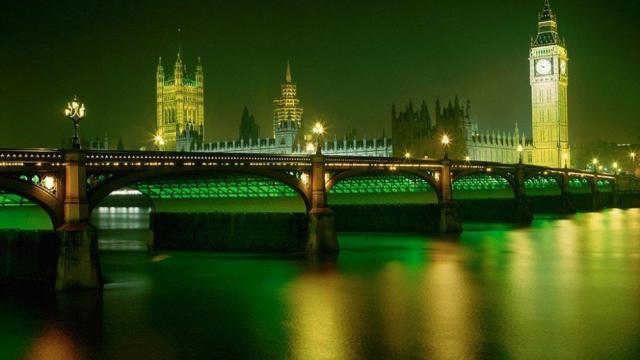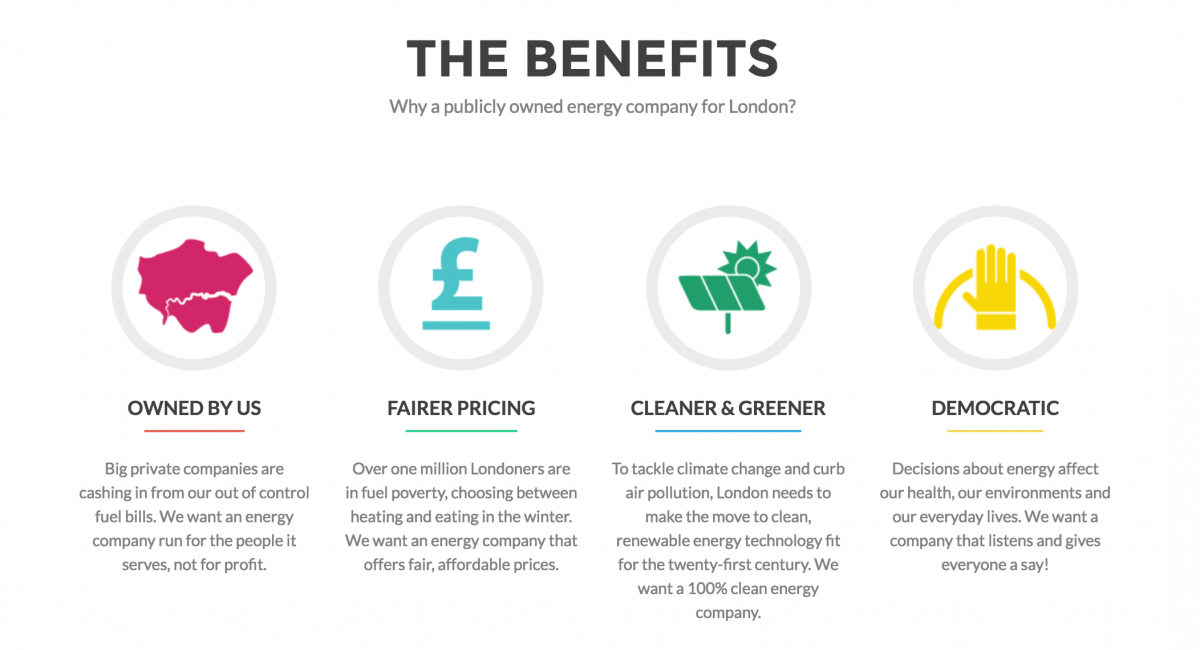
“Democratizing energy means we can recapture the power from the predatory fossil fuel companies which are destroying the livelihoods of people, especially in the global South,” Hamza Hamouchene tells me at the recent launch of Switched On London. Hamouchene says the campaign to create a publicly owned and democratically controlled energy company for the British capital will drive down fuel bills and de-carbonize energy production.
“This campaign is crucial within an international movement to bring global solidarity to those struggling against the capitalist machine and imperialist domination,” he says.
Hamouchene, who is co-founder of the Algerian Solidarity Campaign, explains that the fuel extracted for use in London, and across the Western world, impoverishes and devastates poorer nations deemed “rich” in oil reserves. This is known as the "resource curse."
An example is on the Tunisian island of Kerkennah. Last month, state police violently suppressed protests against Petrofac, a British company that is helping ruin the fishing industry that provides the islanders’ main source of livelihood.
In Algeria, BP has 30-year drilling licenses that were negotiated in the 1990s with a regime fighting a war against its own people. The oil profits continue to flow through London to this day, while the Algerian people remain severely impoverished and continue to suffer regular human right abuses committed by the state.
The Global Capital of Big Oil
Britain could be described as the lion’s den of fossil fuel extraction. The lion is an apt symbol, dating back to the brutal English-led Crusades to the Middle East during the Middle Ages.
During the last few hundred years, bloody crusades have been repeated for oil.
Speaking during the launch of Switched On London, Farzana Khan, from the art and activist collective Platform, asserted that the practice of sacrificing parts of the world for oil production amounts to “environmental racism.”
The City of London is saturated as an oil trading capital of the world, and oil plays a key role in Britain's other leading venture: the war machine. In historic terms, the U.K. owes a massive climate debt, since its wealth is based on carbon intense industries dating back to the Industrial Revolution.
But just as climate change threatens everyone across the planet, new oil extraction practices now threaten impoverished parts of the global North. Three examples of this are the Canadian tar sands, U.S. fracking, and the Deepwater Horizon oil spill in the Gulf of Mexico.
Britain's former energy minister, Lord Howell, explained in blatant terms that fracking should not be done near affluent areas. He said the British government’s fracking plans should focus in the “derelict” and “desolate” Northeast: away from Conservative voters.
Alongside its environmental impact, the other problem with energy companies is the high prices they charge consumers. Due to deals it cut before its democratic revolution in 2011, for example, Tunisia is forced to buy gas at international prices from British Gas, which extracts the fuel from Tunisia’s own offshore reserves. This pattern is repeated across the world, where fuel poverty often occurs side by side with massive energy extraction projects.
Fuel Poverty in Britain
Oil profits may hub through London, but they do not benefit the majority. For one reason, the profits are often offshored in tax havens. Expensive energy is also becoming a sizable problem in richer countries; over the British winter of 2014-15, figures show that 15,000 people died as a result of fuel poverty. In London alone, 1 million people are said to live in fuel poverty.
The Switched On London launch was held on Myatts Fields Estate, social housing where locals once shared communal heating to the flats. But through a gentrification process, the local council and the private company E.ON forced residents to move to individual heating – which is both more expensive and worse for the environment. Community members and other activists say a core social dilemma across London now is whether to “heat or eat.”
But thanks to the Switched On campaign, a new energy path beyond the crises of capitalism is emerging.
Switched On London
The campaign to create a publicly owned energy company in London began in late 2015, initiated by Platform, Fuel Poverty Action and other organizations that involved themselves in brainstorming to address both climate change and fuel poverty. The catalyst, in part, was the election of Jeremy Corbyn to head the Labour Party – an ascent to power that stretched the bounds of political possibility.
The energy campaign’s first major success was bringing mayoral candidates on board. Labour’s Sadiq Khan won the election for London's highest post on May 7. But as far back as February, Khan promised to push for a not-for-profit energy company that will establish more green energy production for the city. The next task for Switched On will be to hold him to this pledge.
British Councils of Nottingham and Bristol have already created public energy companies. Through Robin Hood Energy in Nottingham, the council has licensed a public energy company that is driving bills down. In Bristol, a similar model is also looking to use additional revenue to accelerate renewable energy production. Not-for-profit energy companies can reduce bills as they do away with astronomical CEO salaries, shareholder pay-outs and advertising – and reinvest profits into renewables that further cut consumer costs for power.
In addition, Switched On London advocates differential pricing plans that encourage energy conservation, and lower prices for those in greatest need. The Switched On campaign also calls for democratic control through the Greater London Assembly, with referendums, online voting and public assemblies steering the direction forward.
Common-Sense Energy
“I think everyone will support this. Nobody trusts the big energy suppliers: everyone knows they’re too expensive and completely unaccountable," Pilgrim Tucker, a representative from the union Unite, said at the launch. “This project is powerful as it's local. But London is enormous, [with] eight to 12 million people, and this can show the benefits of public ownership.”
Privatization of the energy sector has reaped profits for corporations but posed huge economic problems for populations across the globe. A successful, publicly owned renewable energy company for London would not only give millions of people access to greener, cheaper energy. It would also demonstrate that privatization and profits aren't the only way we organize society.
3 WAYS TO SHOW YOUR SUPPORT
- Log in to post comments














Comments
besleprero replied on
work
I get paid £96 every hour from online jobs. I never thought I'd be able to do it but my friend AH is earning £10k /monthly by doing this job and she showed me how. Try it out on following website....
====== www.PayAbility.TK